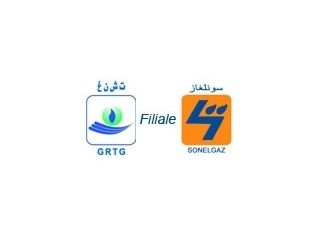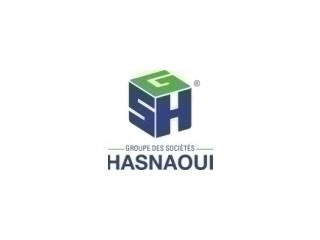A critical biography of Chiang Kai-shek Emploi Plein temps
19 oct. 2022 à 4h21 Sécurité & Sureté Debila 337 vuesDétails de l'annonce
Despite the establishment of the Wang regime, Wang's "peace movement" suffered a fatal blow because of the Gaotao Incident, but Chiang Kai-shek, who scolded Wang's rebellion, did not advocate war wholeheartedly and continued his secret "peace movement". In late December 1939, the Japanese military attache to Hong Kong, Suzuki Takuji Nakasuke, met with Chiang Kai-shek's brother-in-law, Soong Tzu-liang. After several talks, the General Headquarters of the Japanese China Expeditionary Army sent Takeo Imai Daisuke to Hong Kong. On February 14, 1940, Takeo Imai and Song Ziliang met at the Dongfei Company in Hong Kong. It was agreed that a formal round table meeting between China and Japan would be held at the end of February. Takeo Imai rushed to Nanjing and reported to Commander-in-Chief Nishio that he had been ordered to fly to Tokyo on the 19th to explain the contents of the talks to the Chief of Staff of the Palace of Leisure and Shunroku Hata. The General Staff Headquarters immediately sent Daisuke Usui, chief of the Strategy Division, to Hong Kong to learn about the situation on the spot. On March 2, all the Chinese delegates arrived. In addition to Song Ziliang, they included Chen Chaolin, deputy director of the General Staff Office of the Chongqing Battalion, Zhang Yousan, secretary general of the Supreme National Defense Council, and Major General Zhang Hannian and Zhang Zhiping. Three days later, Chiang Soong Mei-ling also arrived in Hong Kong in the name of dental treatment. The talks began on March 8 and were held on the second floor of Dongfei Co. Before the talks,jacuzzi bathtub manufacturers, both sides show their certificates to show their identities. The Japanese side issued a certificate by Army Minister Shunroku Hata, and the Chinese side issued a certificate by Zhang Qun, secretary general of the Supreme National Defense Council. The talks were mainly about the issue of "Manchukuo", the joint defense of the Communist Party by Japan and China, the Wang regime, and the stationing of Japanese troops in North China. Of course, the most common view is to defend the Communist Party together, and there is room for discussion on other issues. Soong Mei-ling returned to Hong Kong in May. Soong Tzu-liang also invited Takeo Imai to have a secret talk in his yacht on the waters of Hong Kong,hot tub wholesale, stressing that Generalissimo Chiang Kai-shek really wanted peace (see Memoirs of Takeo Imai, p. 144), and that if the peace talks were successful, he could launch a punitive expedition against the Communists as soon as July. Therefore, on June 6, after many consultations, the representatives of the two sides unanimously agreed that Seishiro Itagaki, Chiang Kai-shek and Wang Ching-wei should hold the Changsha talks. The following MOU was signed in Hong Kong on July 22: The following is the agreement of the Japanese-Chinese representatives on the armistice talks, which was made in accordance with the will of Chief of General Staff Itagaki and Generalissimo Chiang Kai-shek, and after mutual confirmation of the personal documents of their respective superiors on the talks: 1. Time: early August II. Location: Changsha 3. Method: Itagaki Seishiro and Chiang Kai-shek discussed the issue of a truce between Japan and China. On behalf of Suzuki Zhuoer (seal) On behalf of Song Shijie (seal) Showa 15 July 23 This is what the Japanese call "Kiri Kqsaku". Song Shijie is Song Ziliang's alias, in fact, Song Ziliang is also a spy. At the same time, Chiang Kai-shek sent a telegram to Tu Shih-shan in Hong Kong on June 21, inviting Hsuan Yeh to come to the peace talks and "expressing regret" on his behalf. Hsuano originally planned to go to Hong Kong in early August, but was blocked by Itagaki's "Tong Work". On August 5, jacuzzi bath spa ,best whirlpool tub, Tang Zong, who worked in the attendant's office, noticed that "peace has been held in secret in the past few days. This matter is of great importance, and very few people outside know about it." ( "Eight Years at Chiang Kai-shek's Side", page 145) Tang Zong did not participate in the matter, he only knew from the observation of "many small signs". On August 28, Dai Li told Tang Zong, "Zhang Jiluan came back yesterday and flew to Hong Kong today. This is related to the secret negotiations with Japan." (Same book, page 151) It can be a circumstantial evidence of the ongoing "Tong Work". This "Tong work" can be said to be the climax of the peace talks between Chiang Kai-shek and Japan. When it came to the talks between the three men, it was because the war situation was unfavorable to China. At that time, both Britain and France wanted to compromise with Japan, and the Japanese army had already occupied Yichang, directly threatening Chongqing. Jiang naturally wavered to the most serious moment between peace and war. However, while the "Tong work" was in full swing, Konoe Fumiaki formed a cabinet for the second time. Chiang remembered that Konoe had made a statement that he would not be an opponent with him, so he asked for it to be revoked in some way on July 31, and he was relieved. He was also concerned about the treaty between Wang and Japan. The Wang regime had already been established, and it was difficult to be on an equal footing with Wang. Wang, however, was quite willing for Japan to negotiate directly with Chiang (see Bunker, The Peace Conspiracy, P. 155-156), but Chiang put forward the argument that "there is no Chiang with Wang, and there is no peace with Wang", demanding that Wang go abroad, retire, and even hand Wang over to Chiang, which the Japanese side found difficult to accept. More importantly, the Communist Party of China launched the "Hundred Regiments War". The Japanese History of the Pacific War said that the Hundred Regiments War was "the biggest fierce battle since the beginning of the Sino-Japanese War, which dealt a heavy blow to the Japanese army", and that the demonstration of the Communist Party's anti-Japanese strength made "Chiang Kai-shek dare not break away from the anti-Japanese camp". Obviously, if Chiang Kai-shek did not resist Japan, the Communist Party of China would continue to lead the anti-Japanese war. This statement has been confirmed by mainland scholars, who went on to point out that the Hundred Regiments War was launched because of the "Tong Work". If so, the Communist Party of China saved Chiang Kai-shek from becoming a traitor. Now that Chiang Kai-shek had hesitated, although Itagaki wrote a personal letter on August 22, convinced that the talks between the three men "should be able to establish the basis for adjusting the diplomatic relations between the two countries" and encouraging Chiang, Chiang finally dared not accept it, and in mid-September, Song Ziliang conveyed it to him, saying that there were different opinions in Chongqing and that "the Changsha talks should not be held immediately at present". On September 19, the so-called "Tong Work" ended in failure. Nevertheless, Chiang Kai-shek did not give up the peace talks. On November 1 of the same year, he asked Du Shishan to send a telegram to Xuanye, saying: Since Chiang Kai-shek had made an appointment with Shi Shan and others, the line of peace between China and Japan was absolutely maintained, so he refused the Red Army to attack Peiping and Tientsin in order to cut off the Japanese army's aid,massage bathtub manufacturers, and did not allow Xiao Zhang to come back and focus on the Northeast dispute. (Ogawa Heikichi Relations Document (II), p. 696) From this secret telegram, we know that Chiang Kai-shek's refusal to release Xiao Zhang (Zhang Xueliang) was due to the Japanese factor. monalisa.com




